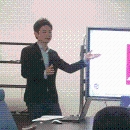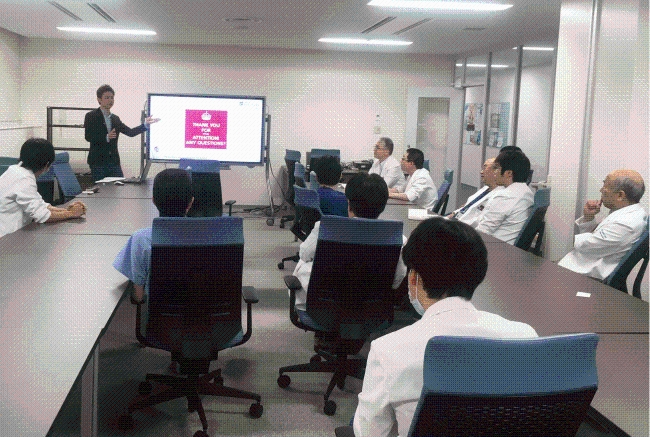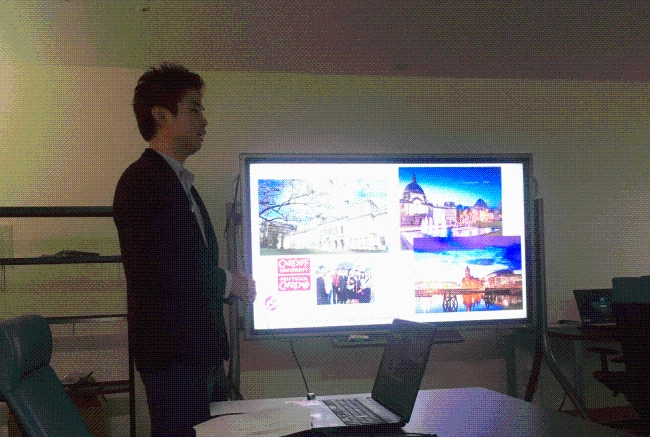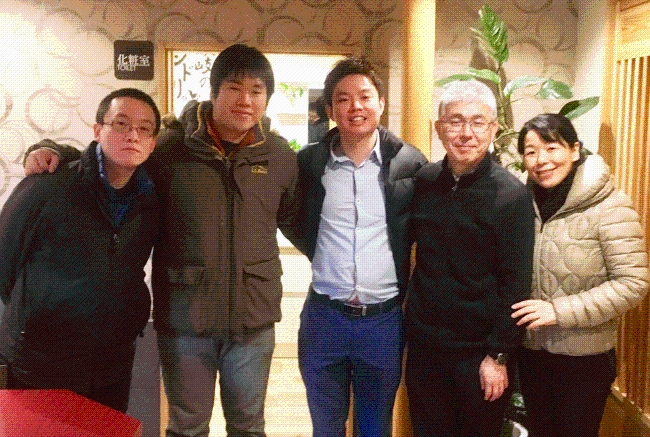イギリス、ブラッドフォード大学から小児形成外科レジデントの見学実習を受け入れました。

2019年2月4日~2月15日の期間、イギリス、ブラッドフォード大学から小児形成外科レジデントのJing Qin Tay先生が当院の見学実習を受け入れました。マレーシア出身ですが、イギリスのカーディフ大学で医学教育を学び、臨床研修後もキャリアを積んでおり、これからイギリスだけでなく、マレーシアを中心とする東南アジア、また日本においても活躍が期待される新進気鋭の先生です。医師になる前には、日本の大学にも留学された経験があり、日本語も想像以上に流暢でした。
折角の機会でしたので、2019年2月12日(火)に平成30年度教育研修部セミナーを開催しました。「イギリスでの医師のキャリア形成の現状~医学教育・臨床研修を通じて~;Career development for doctors in England-through medical education and clinical practice-」の内容で、初期臨床研修医・医師向けにイギリスの医学について講演をお願いし、1時間程度でしたがお話しいただきました。初期研修医からベテラン医師にいたるまで多くの方に参加いただき、本当に活発な討議がなされました。日本とイギリスの医学のシステムを話し合う非常に貴重な機会となりました。

Jing Qin Tay先生に体験コラムをお願いしたところ、日本語はそこまでではないと謙遜されますので、英語でということで以下のコラムをいただきました。以下、日本語訳なしでどうぞ。
I am a plastic surgery resident going into the fifth year of my training. It was a privilege to be accepted for an observation placement at Shikoku Medical Centre for Children and Adults. Having the opportunity to observe first-hand how the plastic surgery service is organised in a Japanese hospital setting proved to be an invaluable experience.

The major differences that I have noticed during my two-week placement here is that patients in Japan have the autonomy to access services in any hospital/clinic of their choice based on the health insurance system. This provides the necessary incentives for each medical centre/clinic to excel in the services and facilities offered to attract more users.
From the healthcare professional perspective, the doctors strive to build a long lasting rapport with the patients. This ensures the continuity of care that extends beyond each individual treatment session. Trust is the backbone of the doctor-patient relationship here. Patients have huge respect for doctors in Japan, and in return, doctors give undivided dedication to their work. Patients’ opinions are actively sought during each consultation to ensure optimal patients’ satisfaction with the surgical outcomes.
As a junior surgical trainee, I have noticed a prominent feature in the training culture here. Senior surgeons look after their junior trainees in a way that is not dissimilar to how parental figures treat their younglings – strict and full of expectation to bring out the best in their successors. Each team functions as a ‘family unit’ and there is an abundance of senior support around for every case. The junior trainees are never left alone to ‘get on’ with the case, no matter how small it might be. While this may seem overprotective at first, the logic behind it is that every treatment/surgical approach is fully discussed and approved by a team, rather than by any single individual, which can only be beneficial to the patients.
In terms of research, there is a dedicated research department in the hospital. Whilst basic science research is not a compulsory component of the training, every clinician is encouraged to use the facilities there. The research department also has dedicated scientists that work alongside clinicians. This multi-disciplinary approach proved to be of paramount importance when it comes to applying for research grant. Of note is the genetics research department here, which has on-going active collaborations with renowned research centres internationally.
It is too short of a time for me to fully understand the practice and working environment here. However, I am glad that I had the opportunity to meet with kindred spirits in Shikoku Medical Centre that share the same vision of providing the best quality healthcare for our patients. I hope that I will be able to visit Shikoku Medical Centre for Children and Adults again in the near future to learn more from the dedicated team of healthcare professionals here.
Jing Qin Tay
